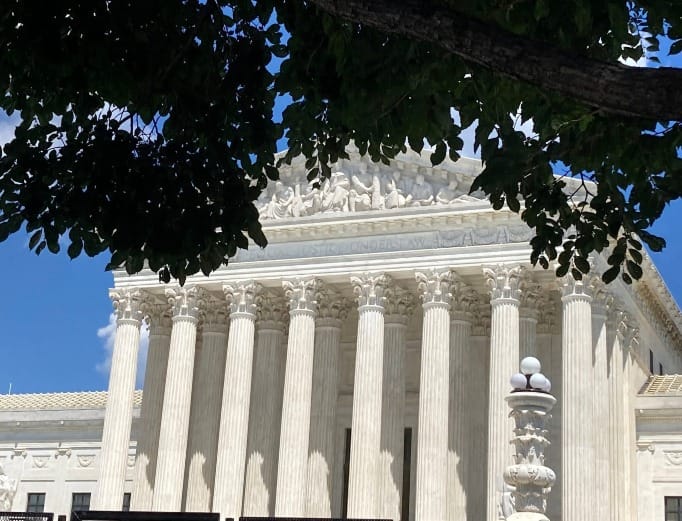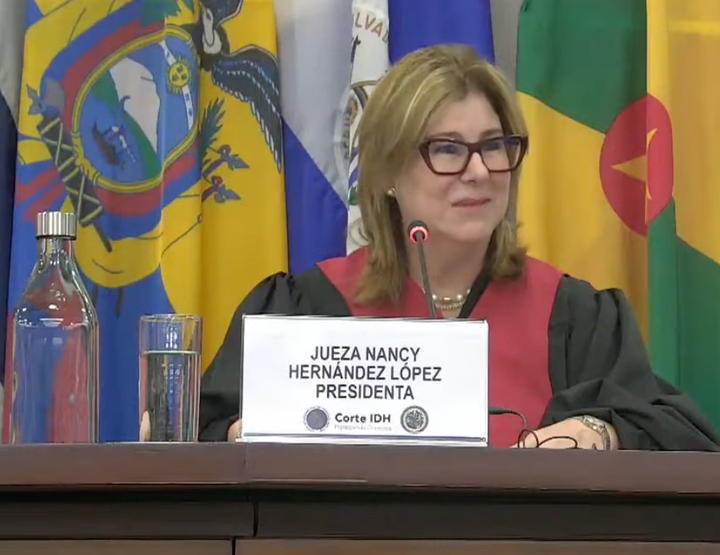Supreme Court Invites US Government Input In Honolulu Climate Case As Oil Companies Attempt To Evade Trial

As climate accountability lawsuits targeting major oil and gas companies in the US continue mounting, the US Supreme Court on Monday issued an order addressing a pair of pending petitions from Big Oil that aim to stop a case filed by Honolulu, Hawaii from advancing to trial. Rather than deny the petitions, the Court is calling on the US Department of Justice to weigh in on the federal preemption arguments raised in the companies’ petitions.
“The Solicitor General is invited to file a brief in these cases expressing the views of the United States,” the Court’s June 10 order states. The order applies to petitions Sunoco LP et al. v. City and County of Honolulu et al. and Shell PLC et al. v. City and County of Honolulu et al., filed in late February by lawyers for oil company defendants in the climate damages and deception case brought by Honolulu in March 2020.
The Honolulu case is proceeding to trial in Hawaii state court following an October 31, 2023 ruling from the Hawaii Supreme Court rejecting the companies’ motions to dismiss, in which they mainly argued that federal law supersedes or preempts state law causes of action when it comes to climate change. Honolulu’s case is grounded in traditional state law tort claims such as nuisance, trespass, and failure to warn, alleging that the fossil fuel industry’s longstanding campaign of climate disinformation and deception contributed to substantial and costly climate consequences to the island community. The case seeks to recover damage costs that could amount to billions of dollars, and it is just one of dozens of climate suits filed by communities across the country targeting the fossil fuel industry.
These cases, according to the petitions, “present a serious threat” to that industry, and lawyers representing fossil fuel firms urged the nation’s highest court to “put a stop” to this growing litigation threat by taking up their petitions. “The Hawaii Supreme Court’s decision was incorrect, and it provides this Court with the ideal opportunity to address whether the state-law claims asserted in this nationwide litigation are even allowable before the energy industry is threatened with potentially enormous judgments,” one of the petitions argues. Right-wing allies of the fossil fuel industry – including a coalition of Republican attorneys general and former Trump administration attorney general Bill Barr – have amplified calls for the US Supreme Court’s intervention. Groups with ties to the conservative “architect of the Supreme Court” Leonard Leo have been running media and influence campaigns in recent months demanding that the Court take up Honolulu’s case, as recent reporting by Rolling Stone and the Guardian revealed.
If the Court were to take up the case, it would be “a really bad sign” for efforts to hold fossil fuel companies accountable through the courts, said Pat Parenteau, emeritus professor of law and senior fellow for climate policy at Vermont Law and Graduate School’s Environmental Law Center.
The Court’s order asking the Solicitor General to weigh in does not mean the justices are granting the oil companies’ petitions for certiorari review, which requires four votes out of nine total, as Parenteau explained. “It doesn't mean there are 4 votes for cert let alone 5 for reversal,” he said. He noted that “[Justice Samuel] Alito has recused because he (or his wife) owns Conoco stocks,” which he said “makes it even harder to get to 4 [votes].” According to Parenteau, it is “fairly standard” for the Court to ask for the Solicitor General’s views “in a case like this with big constitutional issues alleged.”
The US Supreme Court previously did just that in this climate accountability litigation, requesting in October 2022 that the Solicitor General file a brief expressing the views of the US government in oil companies’ legal challenge to a procedural ruling on jurisdiction in a case brought by the city and county of Boulder, Colorado. The Solicitor General’s brief ultimately supported the municipal plaintiffs’ position that the lawsuit does not belong in federal court. And in April of last year, in a blow to Big Oil’s bid to derail the litigation, the Supreme Court denied oil companies’ petitions in the Boulder case as well as a handful of other climate cases (including Honolulu’s).
With their latest Supreme Court petitions filed earlier this year, oil companies are pulling out all the stops in an attempt to evade facing a trial and potential accountability by erroneously claiming that federal law preempts any state legal action pertaining to climate, advocates for climate accountability say.
“The Solicitor General should make clear that federal laws do not preempt the ability of communities to hold companies accountable for their deceptive claims under state law,” Alyssa Johl, vice president of legal and general counsel for the Center for Climate Integrity, said in statement.
“Big Oil companies are fighting desperately to avoid trial in lawsuits like Honolulu’s, which would expose the evidence of the fossil fuel industry’s climate lies for the entire world to see,” added Richard Wiles, president of the Center for Climate Integrity. “The people of Honolulu and other communities across the country deserve their day in court.”
A Shell spokesperson declined to comment on the US Supreme Court’s order on the petitions pending in the Honolulu case. Sunoco, the other lead oil industry petitioner, did not immediately respond to a request for comment.
It remains to be seen whether the Supreme Court will eventually accept or deny these petitions. “I think it means the Supreme Court is interested in the case, so it’s more likely that they’ll take it than the hundreds of run-of-the-mill cases that they routinely deny,” Michael Gerrard, founder and faculty director of the Sabin Center for Climate Change Law at Columbia Law School, told Climate in the Courts. “But it doesn’t mean there is a more than 50-50 chance that they will take it.”
What it does mean, for now, is likely further delay of proceedings including pre-trial preparations in Honolulu’s case, Parenteau explained. “It does mean that everything will be kicked to the Fall and that could slow the Hawaii cases moving towards trial.”


